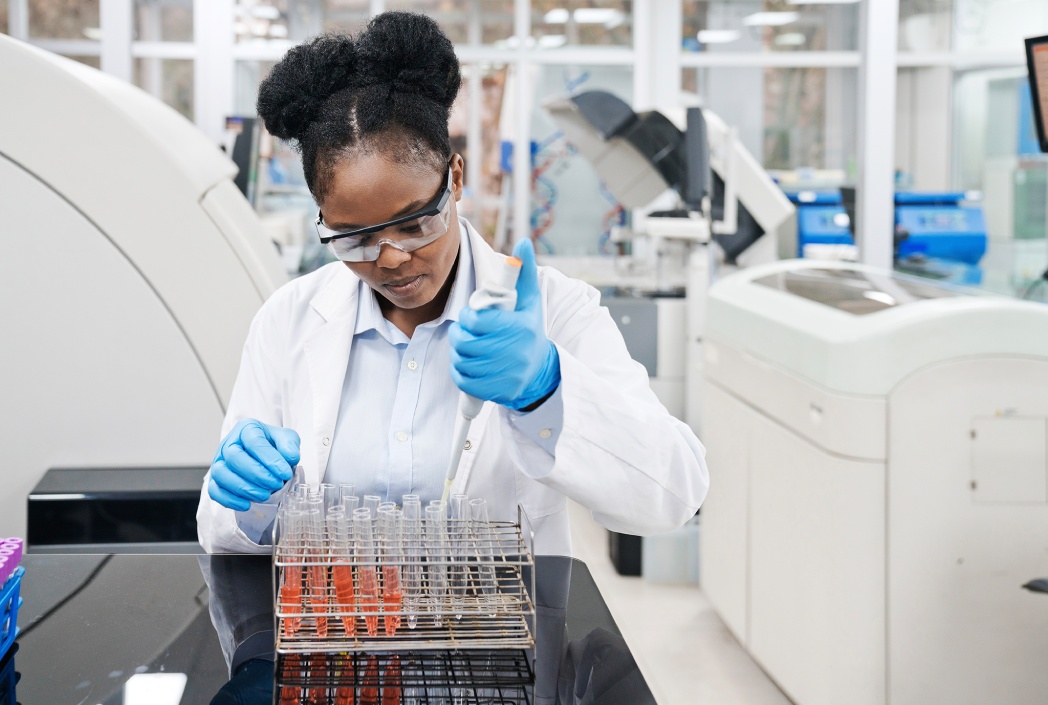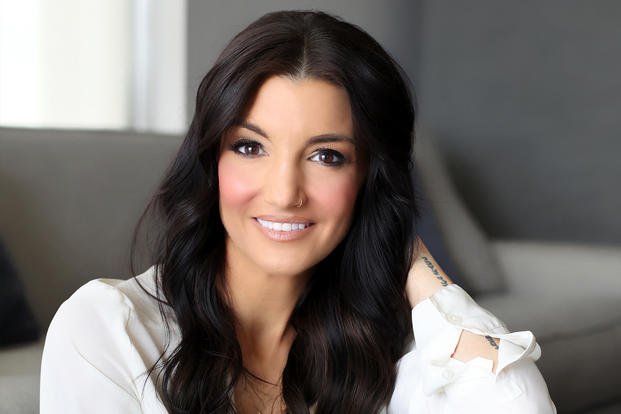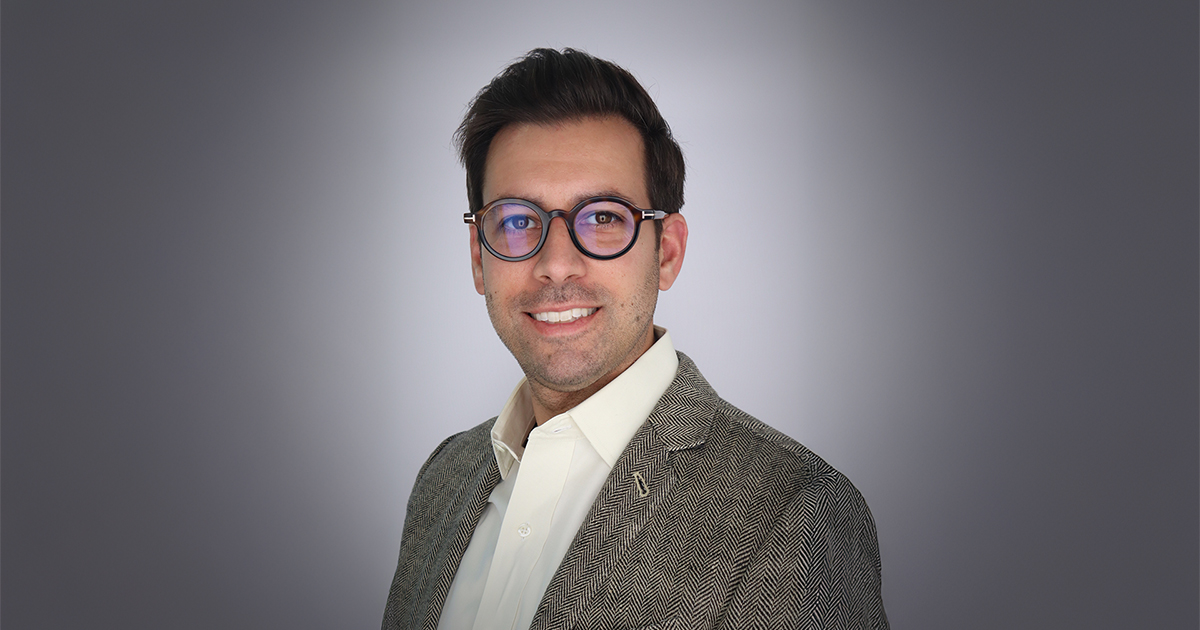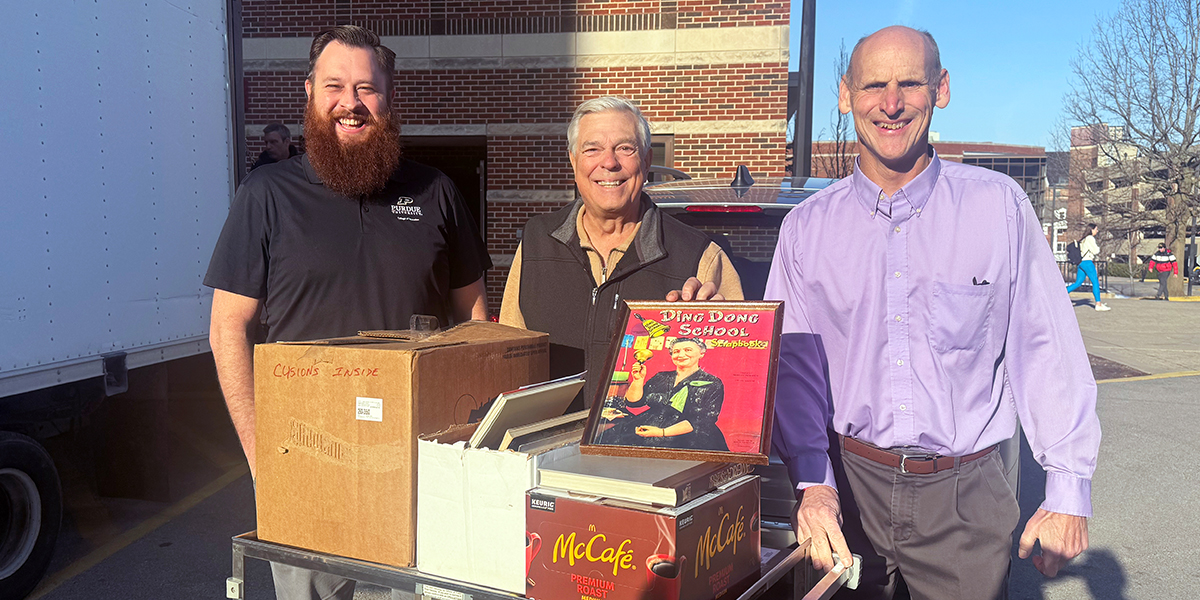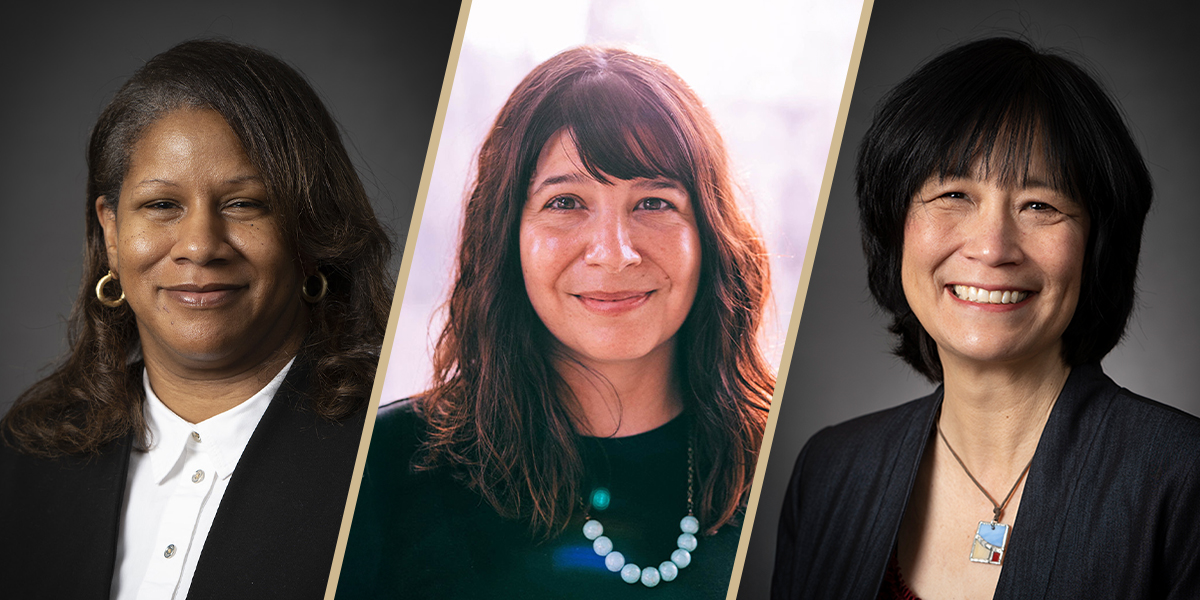Women’s History Month: Graduate Student Julya Kenna
Julya Kenna, president of the University's Association of Women in Science, is passionate about making science and technology accessible to everyone.

By Dr. Kristin Drexler
Faculty Member, School of STEM

To wrap up a month-long celebration of National Women’s History Month, I’d like to highlight another remarkable graduate student, Julya Kenna. Julya is currently seeking a master’s degree in legal studies. Her undergraduate degree was in environmental science with a focus on environmental policy.
Julya is passionate about making science and technology accessible to everyone. She is the president of the University’s student chapter Association of Women in Science (AWIS). She is also the secretary of Women in Science, Technology, Engineering and Math (wSTEM).
Julya currently works in the energy sector in California, focusing on electrification and advancing sustainable solutions.
Celebrating Julya Kenna and Her Passion for Equity in STEM

Julya has a commitment to equity and representation in STEM disciplines. Her goal is to “make science and technology accessible to everyone, from young kids just beginning their educational journey to adults exploring new career paths.” To that end, she empowers people – particularly underrepresented students – through professional development and networking.
An Interview with Julya Kenna on Her Inspirations for Women in Science
As a faculty advisor for AWIS and wSTEM, I have worked with and begun to know Julya personally, academically and professionally. Recently, I interviewed her about her future plans and the women in STEM who have inspired her.
Kristin: Tell us about yourself. What is your area of study? When do you graduate and with what degree?
Julya: I recently switched degree plans from pursuing a master’s in business analytics to a master’s in legal studies. My undergraduate degree is in environmental science, with a strong focus on environmental policy.
Getting there wasn’t a straightforward path. I actually started as a marketing major before realizing my passion for policy and sustainability.
Kristin: What are your future goals and aspirations?
Every change in my degree path has been intentional and driven by my career aspirations. I’ve been fortunate to have incredible opportunities, but my current role is by far the most exciting. I work in energy policy, as a policy project manager, with a particular focus on building electrification implementation.
This role has given me unique insight into decarbonization from the perspectives of customers, service providers and government agencies. I love what I do and am passionate about creating meaningful change in this space.
Kristin: Who has been your biggest influence or inspiration in STEM? Is there a woman whose accomplishments have been particularly impactful to you on your STEM journey?
Julya: I’m lucky to be surrounded by incredible women in STEM every day, and it brings me so much joy. My company has many female engineers, several of whom hold major leadership positions. It’s not uncommon to hear women in STEM talk about working in a “male-dominated field,” so it’s refreshing to be in an environment that actively recognizes and supports women in these roles.

That said, my biggest inspiration is my stepmom, Rose, who I truly consider my mom. She built airplane parts and introduced me to robotics at a very young age.
Watching her work sparked my early fascination with aeronautics. For a long time, I dreamed of becoming an aerospace engineer. Ultimately, math wasn’t my strong suit, but her influence instilled in me a deep appreciation for STEM and the critical role women play in these fields.
Kristin: Why are you passionate about STEM?
Julya: Because my career is interdisciplinary, I have a unique perspective on STEM education and careers, especially as a woman. Growing up, I never felt like I was “good enough” to be a scientist or engineer, which is why I didn’t pursue those fields early in my education.
At some point, I realized that while STEM knowledge is crucial, government decisions shape how science is understood, funded and implemented. It’s easy to focus on when policymakers disregard science, but what’s more important, and more interesting, is influencing the government to understand and apply science effectively. That’s why I’m so passionate about the intersection of STEM and policy.
Kristin: What made you want to become an officer for AWIS?
Julya: I wanted to become an officer because I’m passionate about helping women discover and access STEM opportunities. As a military spouse and mother, I understand how challenging it can be to pursue education and career goals, let alone build a professional network.
The University provides an excellent academic foundation, but achieving broader career goals requires knowing where to look and how to connect with the right opportunities. I hope to bridge that gap for others through AWIS.
Kristin: How do you want to influence younger people in STEM – personally, academically or professionally?
Julya: My role in STEM is interdisciplinary. I actively engage in science, technology, engineering and math to support informed decision-making in policy. While I may not be considered an expert in any single STEM field, I have enough knowledge, along with the expertise of others, to ensure that science-driven policies are well-informed and effective.
Kristin: Do you have advice for younger people entering these fields?

Julya: My biggest advice to young people is this: When you’re passionate, you can do anything. You don’t have to fit the traditional mold of a scientist or engineer to make a difference in STEM. Also, never underestimate the power of civic engagement.
While we can all take small steps to better the planet in our daily lives, nothing drives change as effectively as voting. Intentionality in both science and government matters, and we all have a role to play in shaping a better future.
How to Participate in Women and STEM
If you are a student, alumni, faculty or staff at the University and you are interested in science or other science-related fields, you are welcome to join the University chapters of AWIS – the Association of Women in Science – and wSTEM – Women in Science, Technology, Engineering and Math. All are welcome to join.
Note: The view expressed here are the opinions of Julya as an individual, and not necessarily those of her company.
What's Your Reaction?







